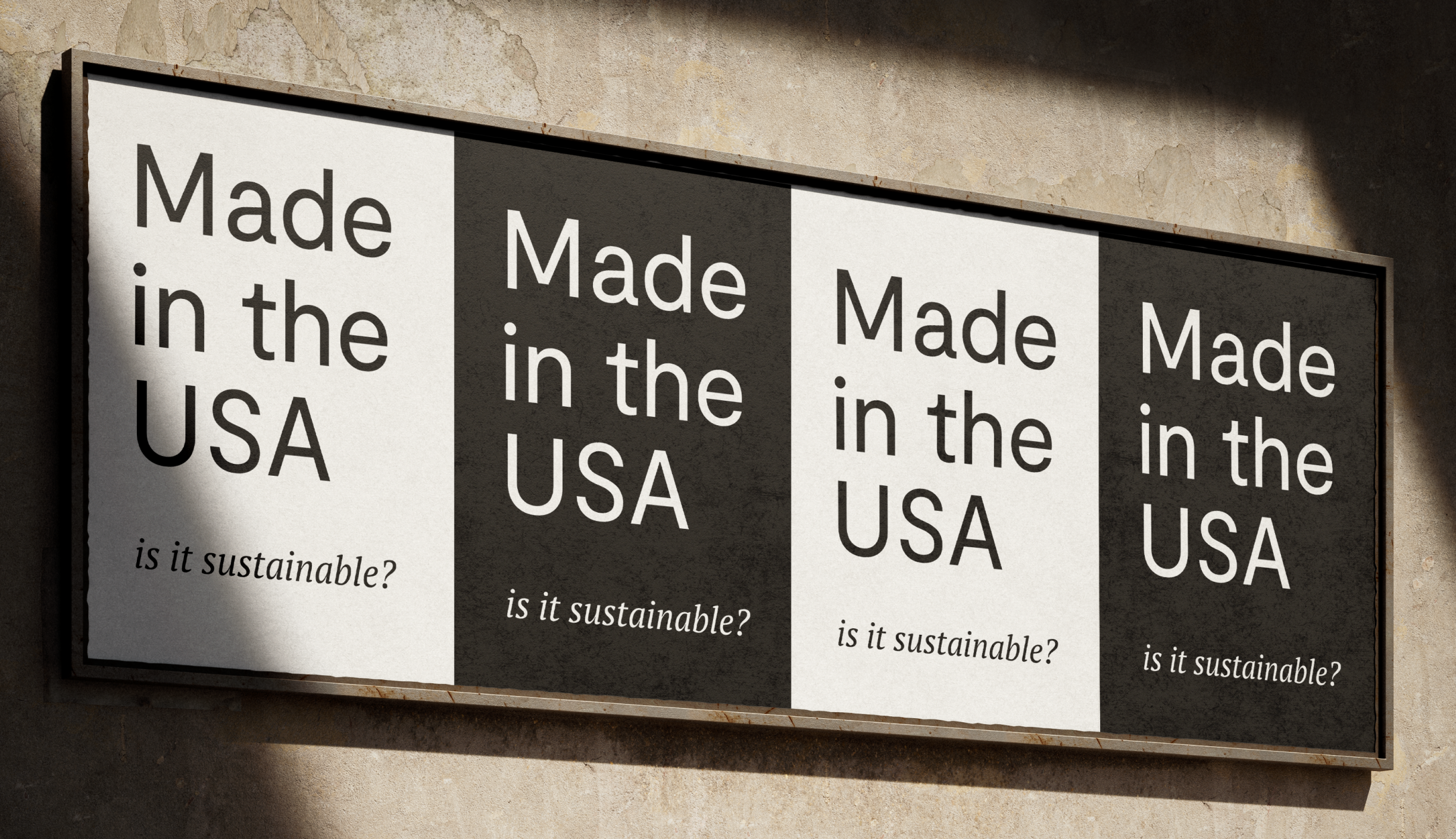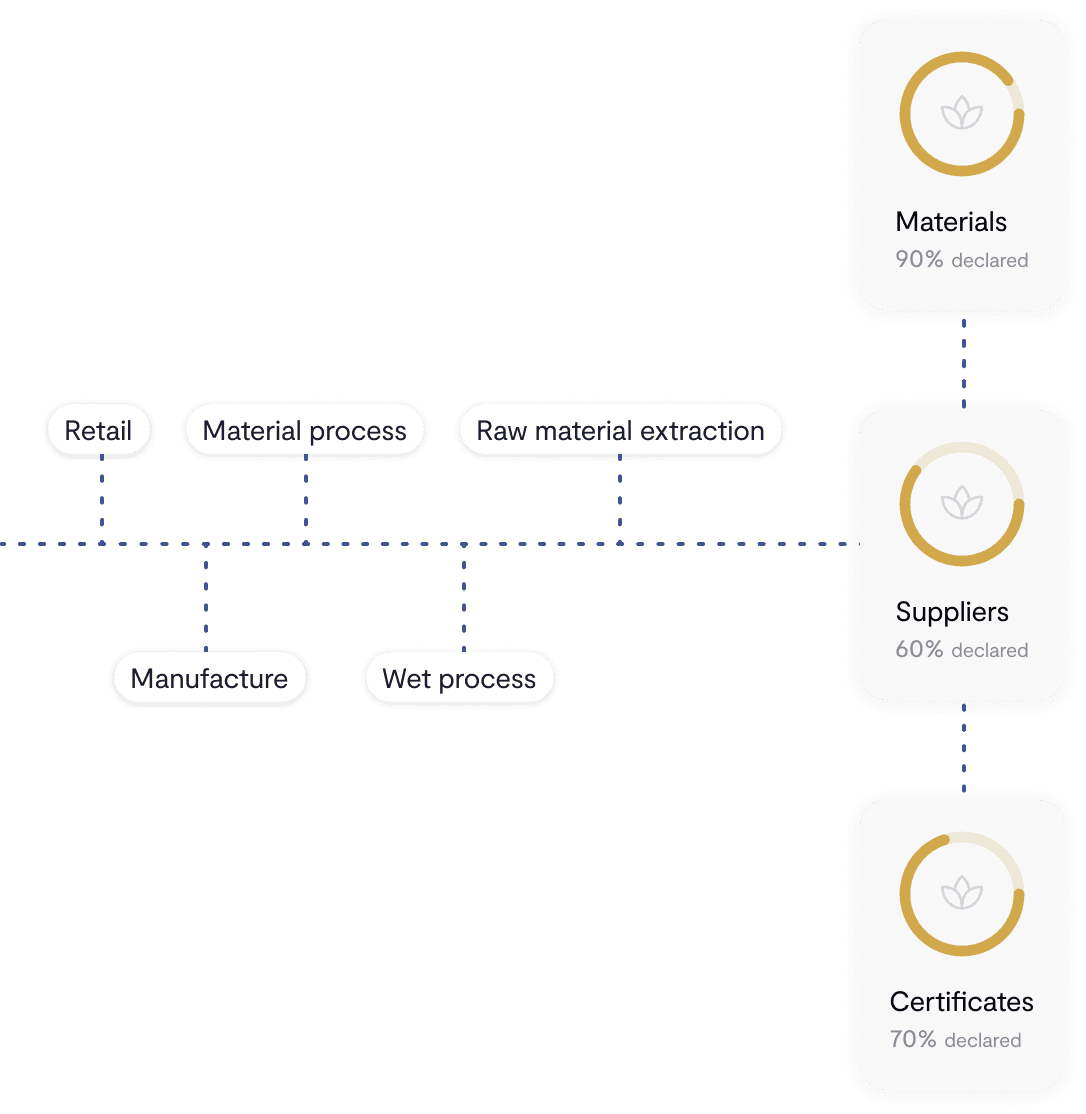In recent years, the “Made in the USA” label has become synonymous with quality and ethical manufacturing practices. Many consumers associate this label with fair wages, safe working conditions, and environmentally friendly practices. However, the reality is more complex. While there are many ethical manufacturers in the United States, the assumption that all American-made products are inherently ethical is a double-standard that warrants closer examination.
The assumption that all American-made products are inherently ethical is a double-standard that warrants closer examination
Where do the ethical assumptions come from?
The perception that products made in the USA are always ethically produced stems from several factors. Firstly, the United States has relatively stringent labor laws compared to many other countries. The Fair Labor Standards Act (FLSA) sets minimum wage, overtime pay, record-keeping, and youth employment standards. Additionally, the Occupational Safety and Health Administration (OSHA) regulates workplace safety, aiming to reduce work-related injuries, illnesses, and deaths.
These regulations create a framework that can lead to better working conditions. Furthermore, the environmental regulations enforced by agencies like the Environmental Protection Agency (EPA) are designed to minimize pollution and encourage sustainable practices.
The reality check
Despite these regulations, ethical lapses can and do occur within American manufacturing. A few key areas highlight the potential ethical issues:
- Labor violations. Despite labor laws, violations are not uncommon. The US Department of Labor often uncovers wage theft, unsafe working conditions, and exploitation of vulnerable workers, particularly in industries such as agriculture, construction, and garment manufacturing. Reports indicate that some manufacturers, especially smaller ones, may not fully comply with labor laws, sometimes due to insufficient enforcement or oversight.
- Subcontracting and supply chains. Many American brands subcontract portions of their production to smaller factories or overseas suppliers where labor conditions may not meet the same standards. This can lead to situations where the final product, while labeled “Made in the USA,” involves unethical practices at some stage of its production.
- Environmental concerns. While the U.S. has significant environmental regulations, enforcement can be inconsistent. Some industries, such as chemical manufacturing, have been found to pollute waterways and air impacting local communities’ health and the environment. The Flint Water Crisis is a poignant example of how regulatory failures can lead to severe public health issues.
What should fashion companies do to meet ethical manufacturing standards?
To navigate the complex landscape of ethical manufacturing, some brands go above and beyond the minimum legal requirements. Certifications like Fair Trade USA, Global Organic Textile Standard (GOTS), and the Responsible Wool Standard (RWS) offer additional assurance of ethical practices.
In order to improve the state of ethical manufacturing, traceability and conducting a Life Cycle Assessment can help prevent risks
In addition to having certifications, the “Made in the USA” label is not a guaranteed indicator of ethical manufacturing. While American labor and environmental regulations provide a foundation for ethical practices, gaps in enforcement and the complexities of global supply chains mean that not all products bearing this label are ethically made. In order to improve the state of ethical manufacturing with clothes that are made in the USA, traceability to identify ethical risks, along with the whole value chain, and conducting a Life Cycle Assessment can help prevent risks while moving from one stage to another.
Traceability plays a crucial role in identifying and mitigating ethical risks along the entire value chain in the clothing industry. By tracking the origin, journey, and transformation of materials, companies can ensure that ethical standards are maintained from the raw material stage to the finished product. Traceability enables companies to:
- Verify compliance. Ensure all suppliers adhere to ethical standards, including fair labor practices, environmental sustainability, and human rights protections.
- Identify gaps. Detect and address potential ethical violations, such as unsafe working conditions or environmentally harmful practices, before they escalate.
- Enhance transparency. Provide consumers with verifiable information about the ethical practices involved in producing their clothing, thereby building trust and brand loyalty.
Conducting Life Cycle Assessments (LCA) is instrumental in preventing risks from shifting from one stage of the value chain to another. An LCA evaluates the environmental and social impacts of a product throughout its life cycle, from raw material extraction to disposal. Here’s how LCAs contribute to mitigating ethical risks:
- Holistic evaluation. By examining every stage of the product’s life cycle, LCAs help identify potential ethical risks across the entire value chain, ensuring that improvements in one area do not lead to issues in another.
- Informed decision-making. Companies can make more informed decisions about sourcing, production, and distribution, choosing processes and materials that minimize negative ethical impacts.
- Continuous improvement. LCAs provide a framework for ongoing assessment and improvement, allowing companies to adapt and refine their practices to address emerging ethical concerns.
At BCome, we support your fashion business in ensuring that regardless of the “made in” label on your products, the entire journey from raw material extraction to the finished product delivery meets the highest ethical standards. Our mission is to help you identify areas for improvement. We tailor our services to your specific needs, shall we talk?









